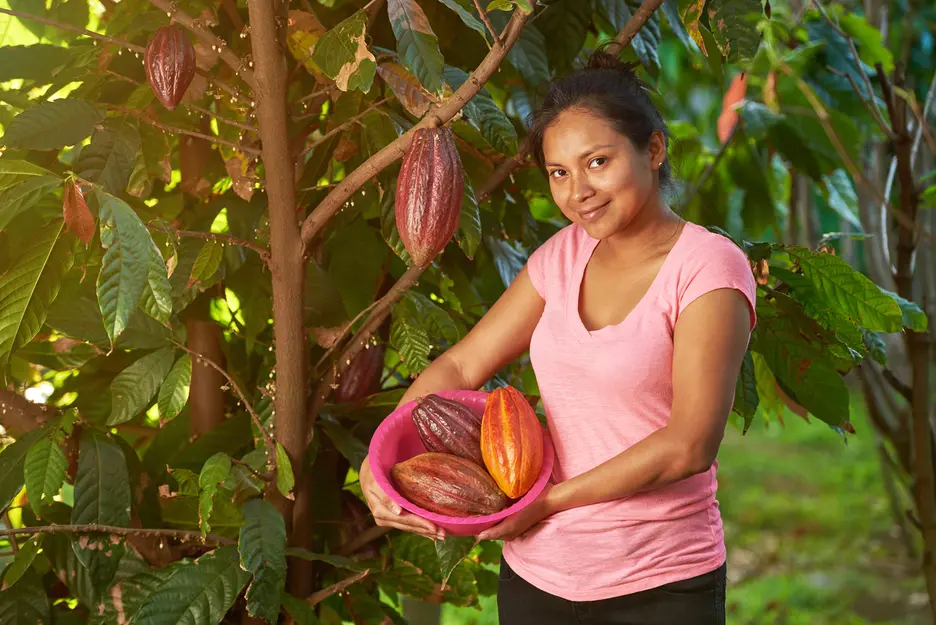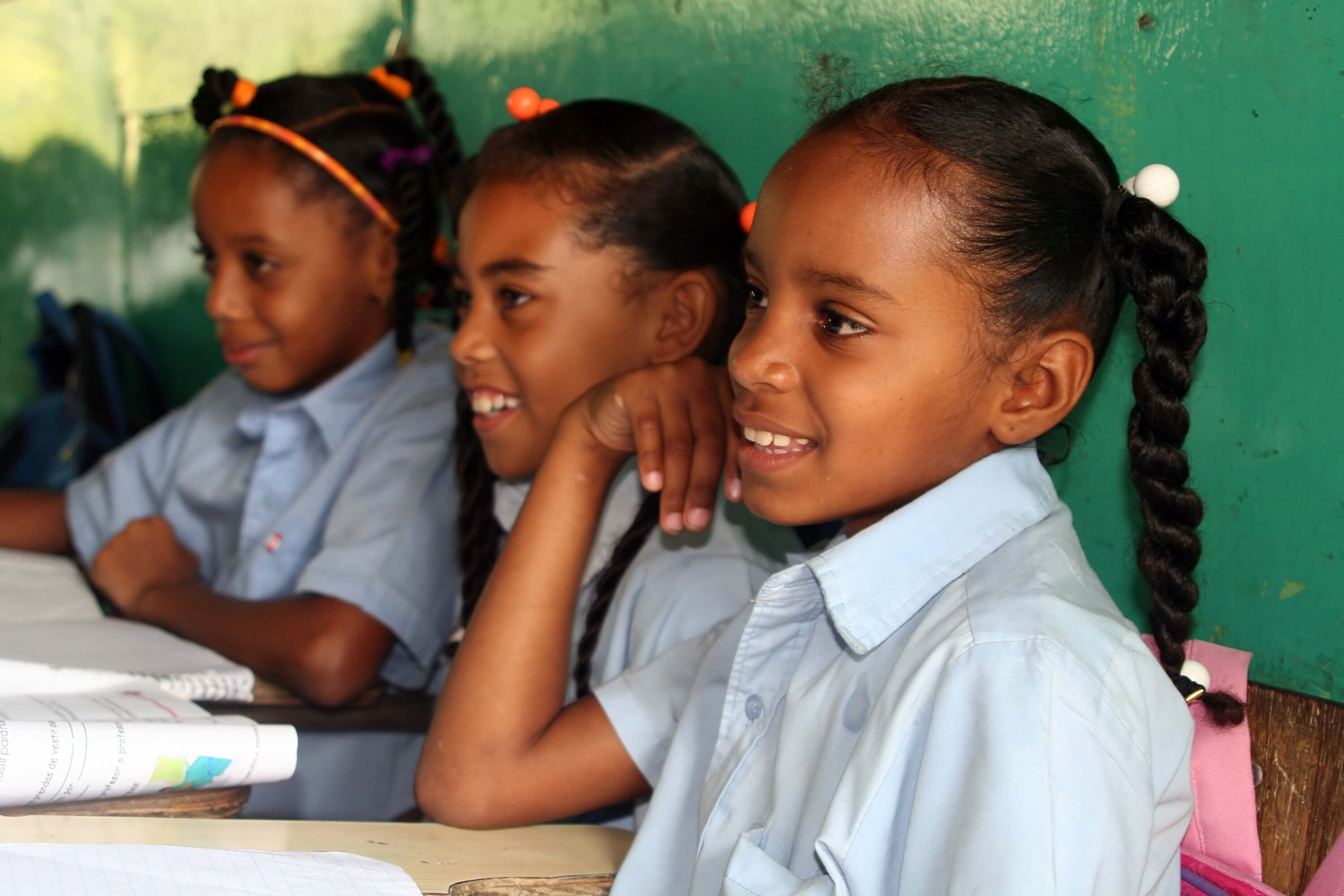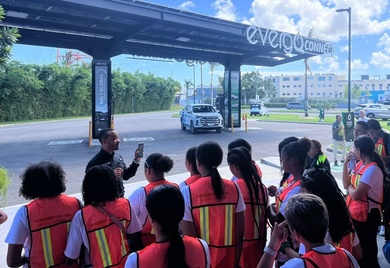Latin America: The Future of Value Chains Smells like Chocolate

Global events over the last few years, from COVID-19 and conflicts to key commodity producers’ protectionist policies, have revealed how complex systems we took for granted can break down under pressure. One estimate in 2022 put the total cost of supply chains disruption at over US$180 million annually for large companies.
The agricultural system is not working for businesses. Arguably, it has never worked for farming communities or other vulnerable sectors either. Current trends point to even greater changes that will increasingly strain these value chains. Additionally, European and North American regulations are requiring more and more of companies.
To reimagine a just, regenerative, and resilient future value chain, IDB Invest partnered with Forum for the Future. This exercise demands understanding the characteristics of a “future-fit” value chain —that drives innovation, thriving, resilient, and creates prosperity, regenerating the planet and people. Cocoa offers a valuable “test case” to explore the types of interventions and models required to get to this endpoint.
With child labor and poverty blighting six million smallholder farmers at one end, and a US$138 billion chocolate industry facing consumers in higher-income countries at the other, cocoa provides a stark example of contrasting living standards between both ends of the chain.
More than 70% of producers are smallholders, who receive less than 7% of the final product and whose livelihoods are threatened by a changing climate and degrading environment, a dramatic demonstration of the intersection of livelihood and nature.
Expansive cocoa production has also been responsible for significant deforestation in Cote d’Ivoire and Ghana, which produce 80% of the world’s cocoa. Conversely, cocoa’s compatibility with agroforestry practices also means it can contribute to reforestation goals.
Adverse weather conditions threaten disease and crop failure. Rising costs of agri-inputs, energy and transport add financial pressure to producers already falling far short of making a living. Child labor and unpaid labor of women are common.
A prime opportunity
For this partnership, we focused on Peru, Ecuador and Colombia as both growing markets and the historical home of the crop. With indigenous communities, regional traditions at heart, and a rich variety of cocoas, this group of countries offers new and old lessons for sustainable production.
Each country could also help inform how we approach future-fit value chains. Ecuador is the third largest exporter in the world; Peru exports the highest volume of organic cocoa globally; and Colombia is a rare example of a country that consumes most of its cocoa production.
Additional reading
In West Africa, on the other hand, where small farmers grow 70% of the world’s cocoa, environmental degradation, poor infrastructure and multiple price crises remain endemic despite years of intervention from the private and public sectors.
The private sector, for instance, focuses primarily on farm-level action to increase yield, obtaining certifications and capacity building, typically in agricultural best practices, child labor prevention and empowering women. Sadly, more is needed to change a system that itself propagates such issues. Deeper and more systemic action is required.
As cocoa produced and sold grows in volume and value, Latin America has the prime opportunity to incorporate lessons learned and chart a way forward for what models of a future-fit cocoa value chain could look like.
Future-fit value chains
Value chains must urgently transform to deliver on decarbonization, food security and equity goals which are critical in the short term. They also need to follow these principles:
- Relational respect between value chain actors that recognizes interdependencies and aims to create synergies.
- Holistic prosperity, expanding true value beyond monetary gain to encompass different forms of capital, all dependent on nature.
- Dynamic innovation in approaching value chains as decentralized, diversified, and ultimately able to adapt to changing conditions.
- Inclusive contribution and decision-making, empowering all actors to negotiate their needs and provide their unique input.
- Place-based nurturing, which honors the uniqueness of communities, cultures and traditions, honoring resilient regions shaped by their own history and ecology.
- Robust circularity flows, ensuring an equitable and efficient flow of energy, materials, information and finance.
With these principles in place, what interventions do we need to develop this system?
Firstly, systemic change in the value chain must come from all stakeholders in the ecosystem. This includes small farmer producers, processors, multinational companies, and other actors, like the financial institutions, that can be essencial in shaping the cocoa trading market.
Special emphasis must be given to financial models that allow full participation of smallholders in the value chain, given that they make up 70% of the global cocoa value chain. Institutions such as IDB Invest can play an important role in creating financial products and services that cater to buyers’ and producers’ needs in the region.
Secondly, interventions should be intersectional, offering multiple benefits to multiple actors. For example, collaborating on innovation across stakeholder groups could produce new products for manufacturers and consumer-facing businesses.
Embedding relational respect can support the reduction of compliance-based risk for all actors, including traders and retailers; place-based interventions may result in investment opportunities for financial institutions as well as delivering social and environmental benefits for farmer communities; and achieving effective circularity offers a range of opportunities from innovations, new income streams and operational efficiencies.
Examples of activities that promise systemic change and holistic value at the same time, are not as common as we’d like, but are increasing.
- Beyond Good established a factory producing chocolate bars close to Madagascan cocoa farmers, offering a permanent investment, providing jobs to the community, increasing income to farmers, and improving the transparency of the value chain.
- Uncommon Cacao has focused on complete transparency, with farmers receiving a drastically higher price and reassured clients over social and environmental regulations.
Creating future-fit value chains requires a mindset shift from every actor group. Sustainability can all too often be viewed as a risk to be mitigated. Instead, we suggest viewing value chain transformation as an opportunity.
The focus should not be on more profit but the chance to develop a system that supports livelihoods and equality, delivers quality goods efficiently, boosts effective business and protects and regenerates the environment.
It may sound idealistic, but it is the shift we need to ensure our future. We invite all actors to join us in exploring how to do this, not just in cocoa, but in all commodity value chains. We ask that you contribute with your collective expertise and wisdom to advance this deep and urgent transition.
IDB Invest and Forum for the Future are now looking for partners to co-fund and co-deliver the Future of Value Chains initiative, convening cocoa actors in the countries in focus and developing new models for value chain relationships and interventions. To find out more, contact Neil Walker, senior strategist, Forum for the Future ([email protected]), and Su Hyun Kim, Sustainable MSME and Value Chain Program Manager, IDB Invest ([email protected]).
Latest blogs
LIKE WHAT YOU JUST READ?
Subscribe to our mailing list to stay informed on the latest IDB Invest news, blog posts, upcoming events, and to learn more about specific areas of interest.
Subscribe



